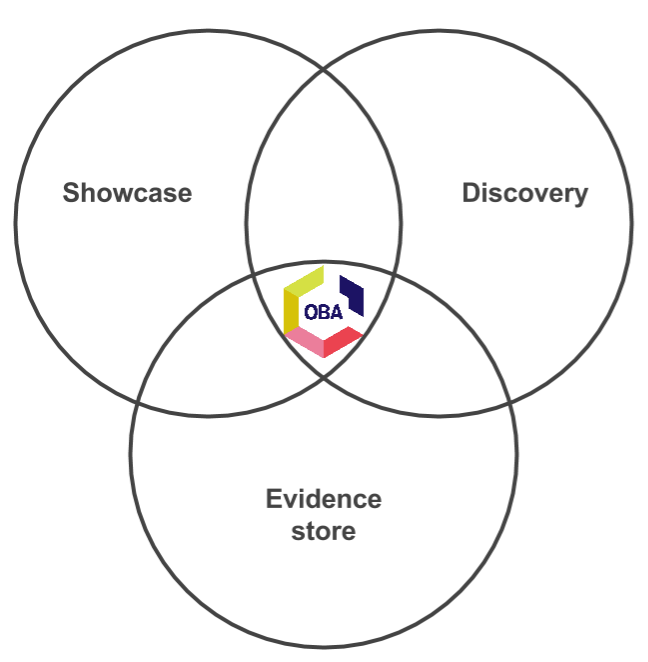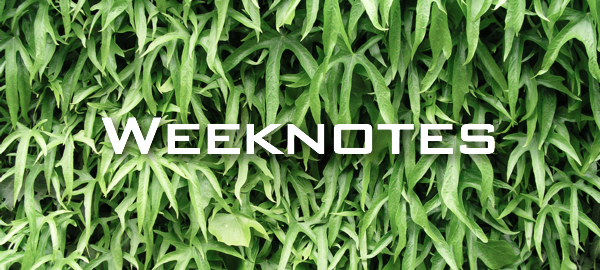
Intro
Back in January of this year, Mozilla announced a ‘continued commitment’ to, but smaller role in, the Open Badges ecosystem. That was as expected: a couple of years ago Mozilla and the MacArthur Foundation had already spun out a non-profit in the form of the Badge Alliance.
That Mozilla post included this paragraph:
We will also reconsider the role of the Badge Backpack. Mozilla will continue to host user data in the Backpack, and ensure that data is appropriately protected. But the Backpack was never intended to be the central hub for Open Badges — it was a prototype, and the hope has forever been a more federated and user-controlled model. Getting there will take time: the Backpack houses user data, and privacy and security are paramount to Mozilla. We need to get the next iteration of Backpack just right. We are seeking a capable person to help facilitate this effort and participate in the badges technical community. Of course, we welcome code contributions to the Backpack; a great example is the work done by DigitalMe.
Last month, digitalme subsequently announced they have a contract with Mozilla to work on both the Open Badges backpack and wider technical infrastructure. As Kerri Lemoie pointed out late last year, there’s no-one at Mozilla working on Open Badges right now. However, that’s a feature rather than a bug; the ecosystem in the hands of the community, where it belongs.
Tim Riches, CEO of digitalme, states that their first priority will be to jettison the no-longer-supported Mozilla Persona authentication system used for the Open Badges backpack:To improve user experience across web and mobile devices our first action will be to replace Persona with Passport.js. This will also provide us with the flexibility to enable user to login with other identity providers in the future such as Twitter, Linkedin and Facebook. We will also be improving stability and updating the code base.
In addition, digitalme are looking at how the backpack can be improved from a user point of view:
“We will be reviewing additional requirements for the backpack and technical infrastructure gathered from user research at MozFest supported by The Nominet Trust in the UK, to create a roadmap for further development, working closely with colleagues from Badge Alliance.
Some of the technical work was outlined at the beginning of the year by Nate Otto, Director of the Badge Alliance. On that roadmap is “Federated Backpack Protocol: Near and Long-term Solutions”. As the paragraph from the Mozilla post notes, federation is something that’s been promised for so long — at least the last four years.
Federation is technically complex. In fact, even explaining it is difficult. The example I usually give is around the way email works. When you send an email, you don’t have to think about which provider the recipient uses (e.g. Outlook365, GMail, Fastmail, etc.) as it all just works. Data is moved around the internet leading to the intended person receiving a message from you.
The email analogy breaks down a bit if you push it too hard, but in the Open Badges landscape, the notion of federation is crucial. It allows badge recipients to store their badges wherever they choose. At the moment, we’ve effectively got interoperable silos; there’s no easy way for users to move their badges between platforms elsewhere.
As Nate mentions in another post, building a distributed system is hard not just because of technical considerations, but because it involves co-ordinating multiple people and organisations.
It is much harder to build a distributed ecosystem than a centralized one, but it is in this distributed ecosystem, with foundational players like Mozilla playing a part, that we will build a sustainable and powerful ecosystem of learning recognition that reflects the values of the Web.
Tech suggestions
I’m delighted that there’s some very smart and committed people working on the technical side of the Open Badges ecosystem. For example, yesterday’s community call (which unfortunately I couldn’t make) resurrected the ‘tech panel’. One thing that’s really important is to ensure that the *user experience* across the Open Badges ecosystem is unambiguous; people who have earned badges need to know where they’re putting them and why. At the moment, we’ve got three services wrapped up together in badge issuing platforms such as Open Badge Academy:

One step towards federation would be to unpick these three aspects on the ecosystem level. For example, providing an ‘evidence store‘ could be something that all badge platforms buy into. This would help avoid problems around evidence disappearing if a badge provider goes out of business (as Achievery did last year).
A second step towards federation would be for the default (Mozilla/Badge Alliance) badge backpack to act as a conduit to move badges between systems. Every badge issuing platform could/should have a ‘store in backpack’ feature. If we re-interpret the ‘badge backpack’ metaphor as being a place where you securely store (but don’t necessarily display) your badges this would encourage providers to compete on badge display.
The third step towards federation is badge discoverability. Numbers are hard to come by within the Open Badges ecosystem as the specification was explicitly developed to put learners in control. Coupled with Mozilla’s (valid) concerns around security and privacy, it’s difficult both to get statistics around Open Badges and discover relevant badges. Although Credmos is having a go at the latter, more could be done on the ecosystem level. Hopefully this should be solved with the move to Linked Data in version 2.0 of the specification.
Community suggestions
While I’m limited on the technical contributions I can make to the Badge Alliance, something I’m committed to is helping the community move forward in new and interesting ways. Although Nate wrote a community plan back in March, I still think we can do better in helping those new to the ecosystem. Funnelling people into a Slack channel leads to tumbleweeds, by and large. As I mentioned on a recent community call, I’d like to see an instance of Discourse which would build knowledge base and place for the community to interact in more more targeted ways that the blunt instrument that is the Open Badges Google Group.
Something which is, to my mind, greatly missed in the Open Badges ecosystem, is the role that Jade Forester played in curating links and updates for the community via the (now defunct) Open Badges blog. Since she moved on from Mozilla and the Badge Alliance, that weekly pulse has been sorely lacking. I’d like to see some of the advice in the Community Building Guide being followed. In fact, Telescope (the free and Open Source tool it’s written about) might be a good crowdsourced solution.
Finally, I’d like to see a return of working groups. While I know that technically anyone can set one up any time and receive the blessing of the Badge Alliance, we should find ways to either resurrect or create new ones. Open Badges is a little bit too biased towards (U.S.) formal education at the moment.
Conclusion
The Badge Alliance community needs to be more strategic and mindful about how we interact going forwards. The ways that we’ve done things up until now have worked to get us here, but they’re not necessarily what we need to ‘cross the chasm’ and take Open Badges (even more) mainstream.
I’m pleased that Tim Cook is now providing some strategic direction for the Badge Alliance beyond the technical side of things. I’m confident that we can continue to keep up the momentum we’ve generated over the last few years, as well as continue to evolve to meet the needs of users at every point of the technology adoption curve.
Image CC BY-NC Thomas Hawk




